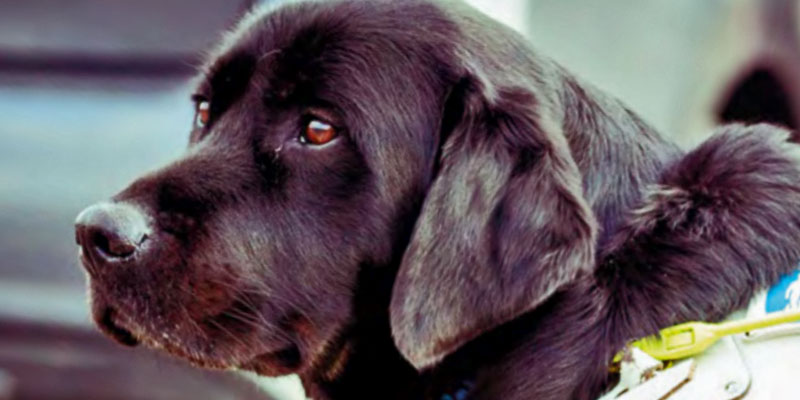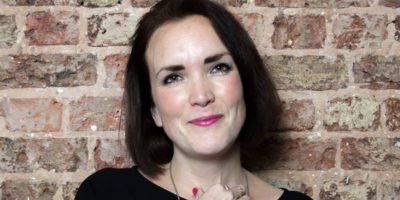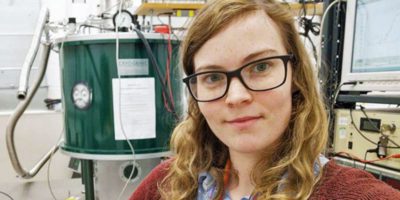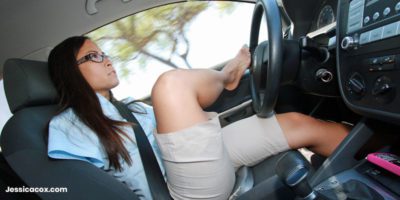Winnie Lam is a policy support officer in the Taxi and Private Hire team at TfL. Prior to that, she worked to improve services on our bus network. She is the chair of the Staff Network Group for Disability, serving as an advocate for the hundreds of disabled employees across TfL.
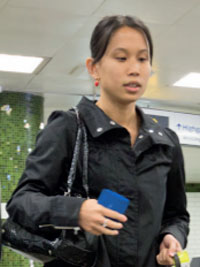
“As the chair of the Staff Network Group for Disability, I feel a sense of responsibility. I’m representing a group of people and ensuring that the organisation values and understands our role and the importance of diversity and inclusion.”
Education and career to date
I actually started off in mainstream education when I was eight when I came to this country. At that time it was quite challenging because not many people knew about disability, visual impairment in my case, and knew how to educate somebody who can’t see or see much. I had to change to a specialist school for visually impaired people and it was a lot better. I did my GCSEs within two years instead of five. I then continued going to college in a specialist school and eventually, went back to mainstream education for university.
University wasn’t straightforward as I had to assist with the fight to get the support I needed for my studies. At the end of it, I got a relatively good degree. It didn’t take too long to find my first job but after a year or so, the financial crisis happened. I was amongst the many people who were unemployed and struggled to find employment.
Stepping into transport
My first step into transport was working in a bus garage but that ended after a year. Then, I came into TfL and started doing a few work placements in teams like Events and Visual Services. For the past six to seven years I’ve been in TfL, I’ve moved around within the organisation doing various different types of work and also broadening my knowledge of the organisation.
I’ve been in about six different direct teams and have worked on three different modes of transport. I started in Buses then I went to where I am now, Taxi and Private Hire. In between, I did a short-term role in the Consultations Team and I went on a secondment to London Underground a couple of years ago.
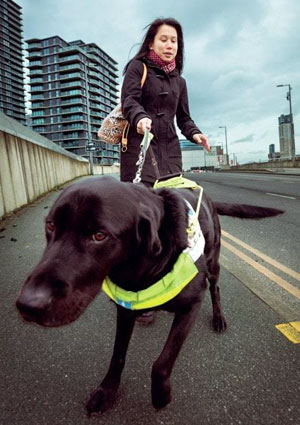
On a day-to-day basis in my current role I read a lot of documents and reports to ensure our policies are up to date with current legislation and Government guidance. I also draft responses to correspondence and liaise with various areas within the team and the wider organisation.
Depending on the nature of the work, I could be looking at a training programme for internal staff so we’ll look to liaise with the training department or sometimes we work with the press office on a press release. It really varies on a day-to-day basis.
When COVID hit
The way I work changed when the Government announced that we all had to work from home in March 2020. That was not just a big change for me or my department, that was a big change for the whole nation. For the first couple of weeks or first month, our team had a team meeting pretty much every day because there were changes within the market and to the population, people and their attitudes.
For my team, as taxi and private hire is a service that people could use on a one-to-one basis in the pandemic and probably became one of the main ways to travel then during lockdown, we had to think about driver and passenger safety.
We also had to write communication pieces to the trades and to our drivers to inform them how they should still be delivering their services and how to keep themselves and their passengers are safe as well as not compromising on road safety. When the furlough scheme came through, workload varied in terms of volume. There were times we had drivers writing to us asking for additional support in the current situation.
In terms of structure, our team stayed the same even though we were all working from home. Technology was an issue initially but issues were eventually solved, thanks to our technology team. They put together a plan to make sure that we could all work from home effectively. Even now, I’m still working from home. We are now returning to the office at least once a week and hybrid working.
Chairing the Staff Network Group for Disability
As the chair of the Staff Network Group for Disability, I feel a sense of responsibility. I’m representing a group of people and ensuring that the organisation values and understands our role and the importance of diversity and inclusion. We also ensure policies and strategies are consistent and representative across the board and that there’s no prejudice or stereotype because you look different from another person or have a different need.
I have recently been reappointed as the chair during a recruitment process for all the leadership across the board for Staff Network Groups. Previously I stepped up to cover my predecessor who left halfway through their term. This time around, I was appointed through my own merits. I was previously the vice-chair of the Staff Network Group for Disability and previous to that I was the communications lead.
For priorities, we know that within the organisation we should encourage more declaration. Disabled staff shouldn’t feel that they can’t declare their disability. They should feel comfortable and able to do so, and it will not have any implications or consequences on their career or jobs.
Our priorities also include making sure the needs of disabled people are being met when, quoting a recent example, returning to offices. We want to ensure that the policy and process for that is as inclusive as it can be to make sure that there’s flexibility in place for those who may need more help and support due to their disability or their health condition(s). We want to ensure that people’s reasonable adjustments are dealt with in the right manner within a sensible timeframe.
Broadening knowledge
Because we work in such a big organisation, it is understandable that we have a very wide-ranging diverse group of people working together. The biggest challenge is to broaden our knowledge of those differences.
The biggest opportunity is to have and accept the knowledge to increase our understanding of our differences, of the city we serve and the jobs that we do. Ultimately, what we do or the demands from the public affects what we do. So, putting the two together and making sure that they work together is important.
Helping non-disabled colleagues better understand disability
In the workplace some people may not know that they have a disability because disability is such a broad term and it covers a wide range of things or they haven’t been diagnosed. That’s why sometimes people may not identify themselves as a disabled person or having a disability.
Some people do know that they have a disability but they don’t identify themselves as disabled because they may not feel that their disability impacts their life enough to make changes or make adjustments to allow them to continue what they’re doing.
I encourage everyone to accept the differences that we have and ask questions to find out how people live their lives. Like I said before, if the knowledge and information is there, then we should find out more about it and implement it within our day to day because at some point, regardless of who you are or what background or what needs you have, you will need help from another person or you will need information or advice. We can then become more inclusive with the knowledge that we have because knowledge is wealth.
The importance of not making assumptions
When considering the implications of making assumptions about disabled people let me start with a personal example. Because of my visual impairment people presume that I have very good hearing and they say that they think it’s amazing how well I can hear — but I say to them actually I don’t have amazing hearing. I just rely on it more so it becomes more sensitive.
I’m not born with additional hearing abilities but it’s something that I’ve always just depended on and subsequently, become more aware. But if there are other disabled people out there with additional talents then that’s great.
Keep on keeping on
I will continue doing my term as chair and also with my day job in Taxi and Private Hire Policy. In terms of what I’ve got planned or in the pipeline, I don’t have anything planned other than to continue doing what I’m doing. I suppose it depends on where the pandemic goes as there’s still quite a lot of uncertainty. At the moment I’m quite happy where I am and I’ll see what else comes my way.

